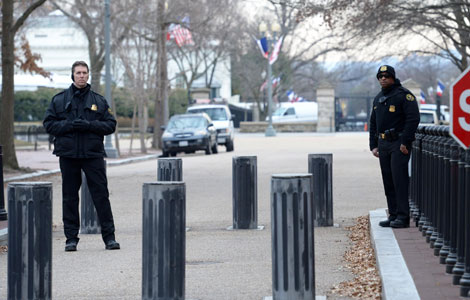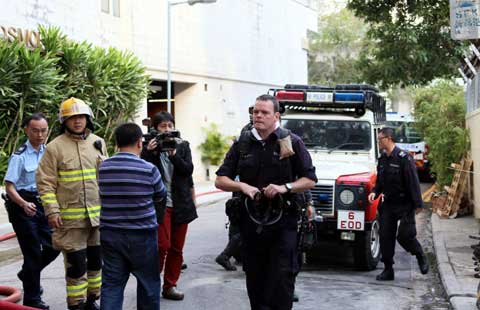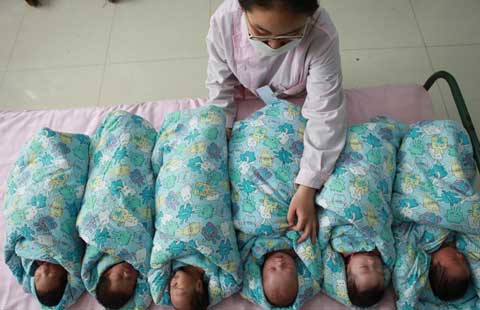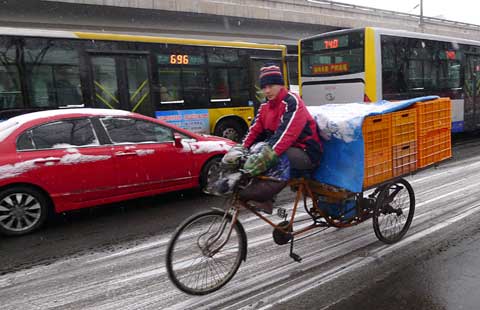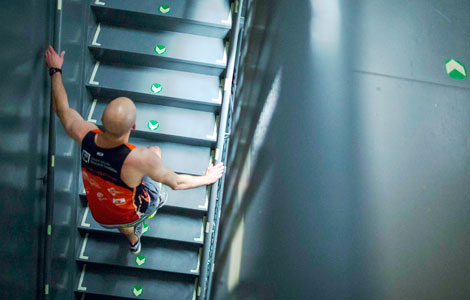Games bid to boost winter sports
Updated: 2014-02-10 09:14
By Cui Jia in Urumqi, Xinjiang, and Lei Lei in Sochi, Russia (China Daily)
|
||||||||
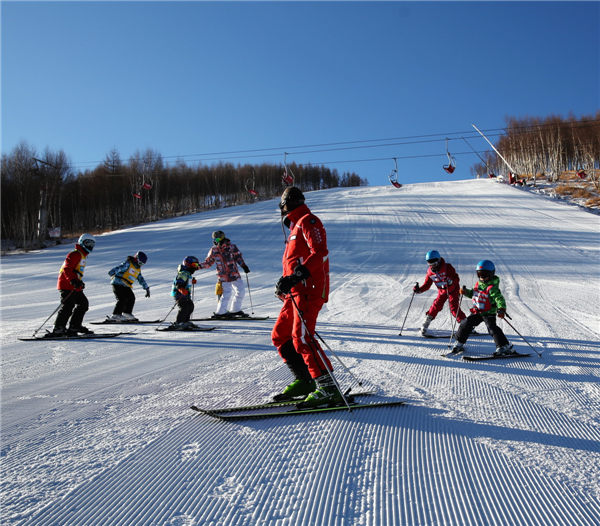 |
|
Children learn technique at a winter camp in Chongli county, Hebei province. The camp is enjoying increasing popularity. Mou Yu / Xinhua |
China has had an enviable record in the Summer Games and topped the gold medal tally in 2008 where it claimed 51 gold medals, 21 silvers and 28 bronzes. It came second in London in 2012.
But in winter sports, the traditional powerhouses are Canada, the United States, Germany and Norway. China achieved its best result four years ago in the Vancouver Games in Canada, where it claimed five golds, two silvers and four bronzes, ranking seventh in the medal tally.
Experts recognize the potential for winter sports to develop in the country.
"The bid will bring more professional ice skating facilities and ski resorts to the Chinese people, encouraging them to attend and participate in various winter events," said Wei Jizhong, the honorary life president of Federation International de Volleyball and former secretary-general of the Chinese Olympic Committee.
"China has made major breakthroughs in winter sports recently, but the whole level still needs to be improved," he added.
China's first Winter Olympics gold medallist Yang Yang agreed.
"Whether we win or lose, it's a good opportunity for China to develop its winter sports," said Yang, who is now an IOC member.
Yang's victory in the women's 500m short track speed skating at the 2002 Salt Lake City Games brought China its first ever Winter Olympics gold medal.
From that moment on, China has seen marked progress in winter sports, especially in speed and figure skating and women's curling.
However, due to climatic conditions, winter sports are mainly strong in three northeastern provinces - Heilongjiang, Jilin and Liaoning.
To better facilitate the bidding, China has rapidly developed winter sports facilities in other areas, such as in the Xinjiang Uygur autonomous region and the Inner Mongolia autonomous region in the north and Shanghai and Jiangsu province in the south.
Since Xinjiang was chosen four years ago to host the National Winter Games in 2016, authorities in the region have attached great importance to the development of winter sports, which were once neglected, said Azat Turson, director of Xinjiang Sports Bureau
Xinjiang's climate is perfect for winter sports and more than 200 ski resorts have been built in the region.
China's freestyle skiing team trained in Xinjiang before heading to Sochi and Azat hopes the region will provide more top quality training facilities and opportunities for national, as well as regional teams, in the future.
"To attract top athletes, ski resorts need to plan ahead. The presence of world-famous athletes is extremely important because they inspire young people," he said.
But the development of winter sports facilities in the region is still behind Jilin and Heilongjiang provinces.
"Part of the problems for ice events will be solved after a world-class training center funded by the government is put into use in Urumqi, capital of the region, at the end of 2014," said Wang Yimin, director of Xinjiang winter sports administrative center.
"Hosting the 2016 National Winter Games and China's bid for the 2022 Winter Olympics have created great opportunities for Xinjiang to promote winter sports," he added.
Most Viewed
Editor's Picks

|

|

|

|

|

|
Today's Top News
China refutes US criticism of maritime claims
Xi pledges to further advance reform
Turkish forces seize suspected hijacker on plane
H7N9 cases persist through winter
Pair detained for catching cats for meat
China-US auditing disputes near resolution
Xi attends Sochi Olympic ceremony
China changing the way it drinks
US Weekly

|

|
